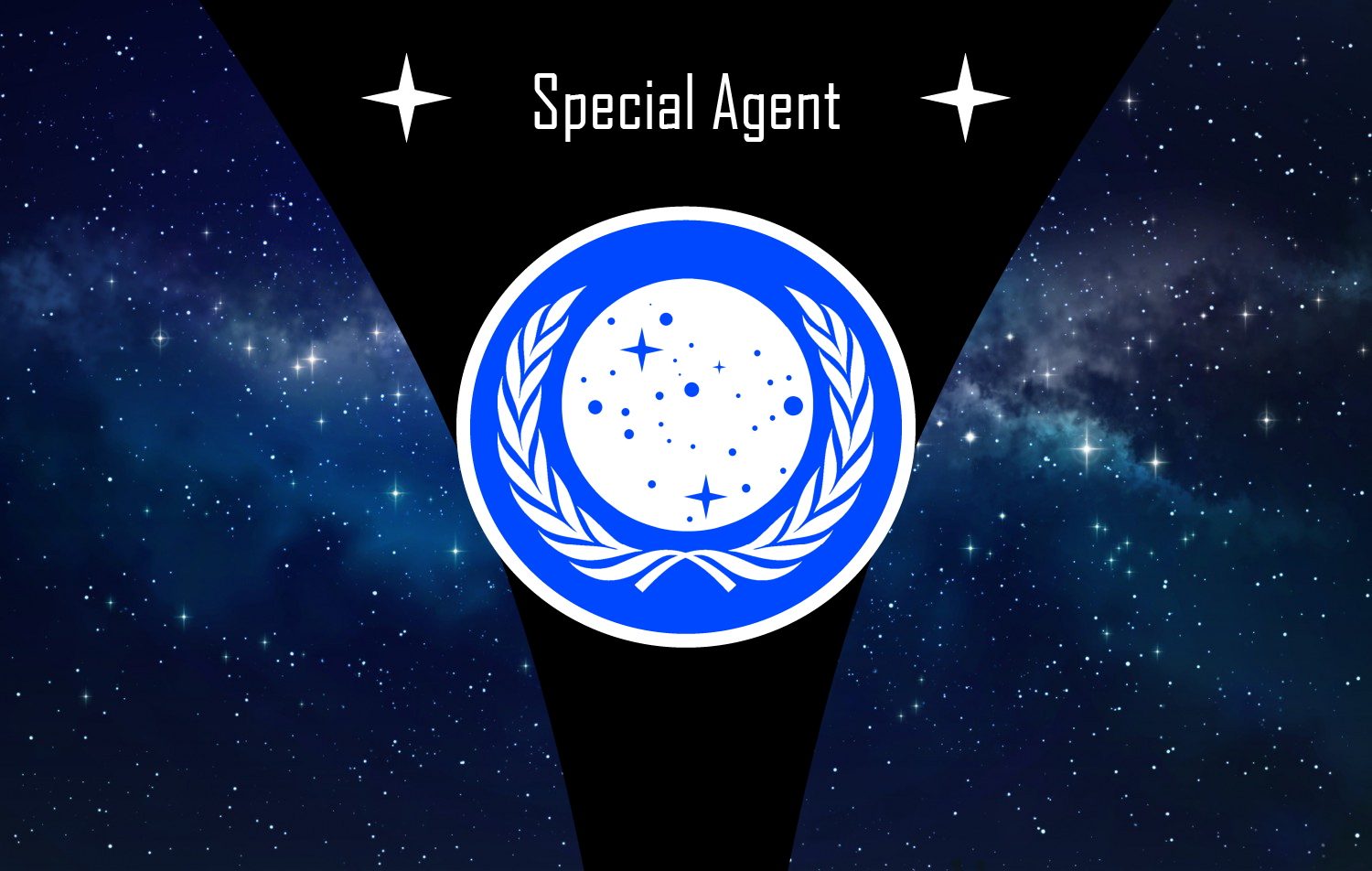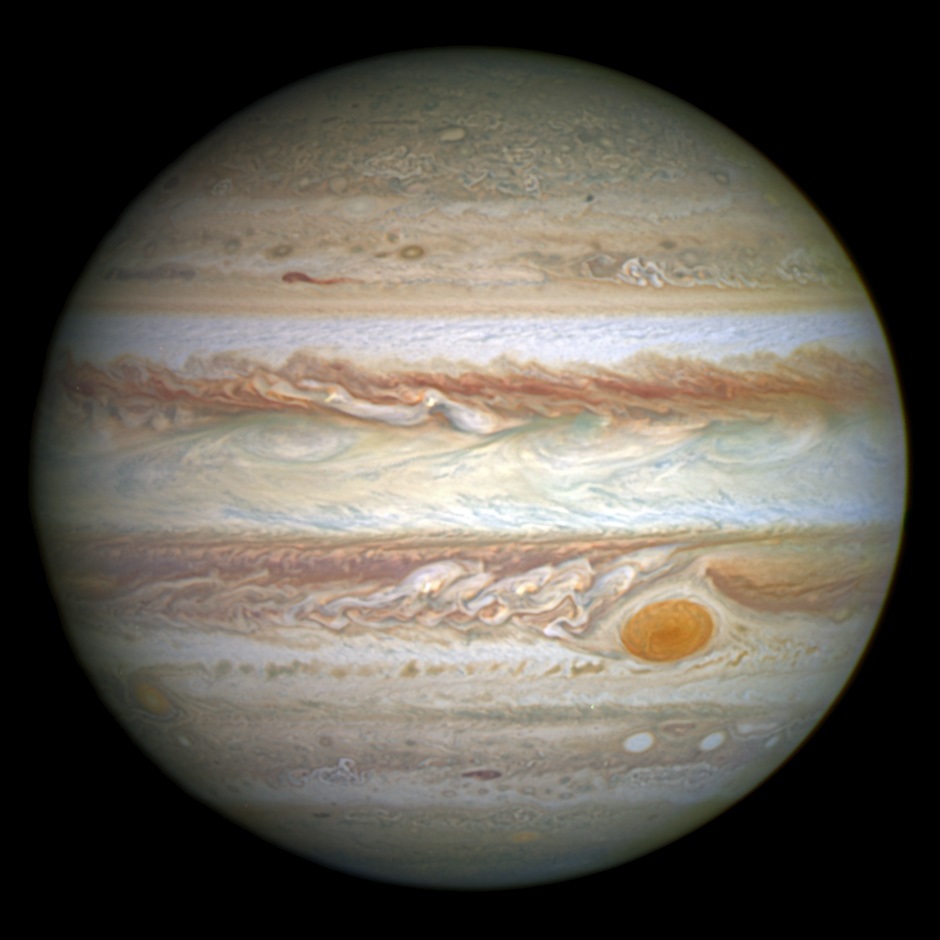Jupiter
Geography
Jupiter is the fifth planet from the Sun and the largest in the Solar System. It is a gas giant with a mass more than two and a half times that of all the other planets in the Solar System combined, but slightly less than one-thousandth the mass of the Sun. Jupiter is primarily composed of hydrogen, but helium constitutes one-quarter of its mass and one-tenth of its volume. It has a rocky core of heavier elements, but, like the other giant planets, Jupiter lacks a well-defined solid surface. The ongoing contraction of its interior generates heat greater than the amount received from the Sun. Because of its rapid rotation, the planet's shape is an oblate spheroid; it has a slight but noticeable bulge around the equator. The outer atmosphere is segregated into several bands at different latitudes, with turbulence and storms along their interacting boundaries.
Localized Phenomena
Jupiter's outer atmosphere undergoes differential rotation, first noticed by Giovanni Domenico Cassini in 1690, who also estimated its rotation period. The rotation of Jupiter's polar atmosphere is about 5 minutes longer than that of the atmosphere at the equatorial line. In addition, cloud banks circulate along certain latitudes in the opposite direction of the prevailing winds. Wind speeds of 360 km/h are common. This wind system would be caused by the internal heat of the planet. The interactions between these circulatory systems create storms and local turbulence, such as the Great Red Spot.
This one is a large oval of nearly 12,000 km by 25,000 km of great stability, since already observed with certainty since at least 1831 and possibly since 1665. Jupiter has a magnetic field, 14 times stronger than that of the Earth, ranging from 0.0042 T at the equator to 0.0010 to 0.0014 T at the poles, which makes it the strongest in the Solar System (at the exception of sunspots). It come from the movements of the highly conductive layer of metallic hydrogen which, by its rapid rotation (Jupiter makes a turn on itself in less than ten hours), acts like an immense dynamo. All these phenomena are at the origin of the largest auroras in the solar system, observed each year by tourists who comes form Ganymede to go into orbit of the gas giant.
Natural Resources
Despite the presence of gases useful for human activities in the upper atmosphere of Jupiter such as hydrogen, carbon or deuterium, an isotope of hydrogen used in nuclear fusion, these are unusable by the nature of Jupiter. Indeed, to be able to harvest these gases effectively, it would be necessary to descend to an altitude where no vessel could escape the gravity of Jupiter. However, even if it is not on Jupiter as such, the Jovian system with these dozens of moons is full of ice which is used for the water supply of colonies in the outer solar system.
History
Along with that of the Sun, the gravitational influence of Jupiter shaped the Solar System. The orbits of most planets are closer to the orbital plane of Jupiter than to the equatorial plane of the Sun (Mercury is the only exception). The Kirkwood gaps in the asteroid belt are likely due to Jupiter and it is possible that the planet was responsible for the late heavy bombardment that the inner planets experienced at some point in their history. The majority of short-period comets have a semi-major axis smaller than that of Jupiter. It is assumed that these comets formed in the Kuiper belt beyond the orbit of Neptune.
During approaches to Jupiter, their orbit would have been disturbed towards a shorter period, then made circular by regular gravitational interaction of the Sun and Jupiter. Furthermore, Jupiter is the planet that most frequently receives cometary impacts. This is largely due to its gravitational well, earning it the nickname "the vacuum cleaner of the Solar System". The widespread idea that Jupiter "protects" the other planets in this way is however very questionable, insofar as its gravitational force also deflects objects towards the planets it is supposed to protect.
Alternative Name(s)
Sol V
Type
Planet
Location under
Included Locations
Owning Organization




Your article on Jupiter was fun---"the vacuum cleaner of the solar system"---something that big is going to attract a lot of attention. I can see Jupiter from my front porch when it rises in the night sky on a clear night, which is most nights where I live. And when I use the fancy binoculars, the five largest moons come into focus. It's a magnificent sight!
Oh cool! I will be happy to do the same thing, but living in a big city, the light pollution is too important to seee anything in the sky. Glad that you like this article, I had fun writing this one.
Creator of the world Special Agent
Any feedback will be greatly appreciated!